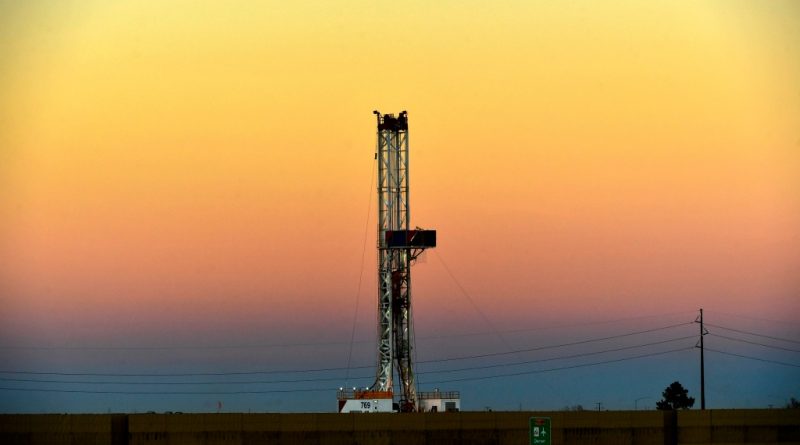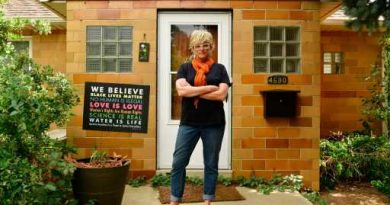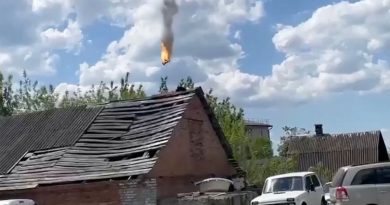Colorado Democrats propose tougher oil and gas permit rules
Legislation being proposed in the Colorado General Assembly would make the state’s air pollution permitting rules more stringent, largely impacting the oil and gas industry and setting up a potential showdown between the governor and supporters of the bill in the statehouse and among environmental groups.
The bill, to be introduced later this week, has been in the works for two years, and its creation was championed by 24 environmental groups that, in a March letter of support, urged Gov. Jared Polis to back the legislation and criticized him for failing to include them in a recent plan to reduce nitrogen oxide emissions in the oil and gas industry.
Environmentalists and the bill’s sponsors want state regulators to perform a modeling analysis of potential pollutants from any newly proposed oil and gas sites, and to consider the cumulative impact oil and gas production has on the state’s climate, before issuing new air permits.
But it may be hard to convince the governor the legislation must be adopted to improve the state’s air quality.
In an emailed statement, Conor Cahill, a spokesman for Polis, said the bill would create “major unintended consequences” that would negatively impact the economy. The bill would stall other plans to reduce ozone and other air pollutants, he said.
“Our air regulators are focused on standards and regulations that will have the largest benefit to the air we breathe,” Cahill said.
The oil and gas industry accounts for almost half of Colorado’s ground-level ozone pollution, and the bill’s sponsors and supporters believe the legislation would lead to significant improvements. During a Monday news conference, multiple speakers talked about the brown haze that blankets the Front Range on hot summer days and the fact that the region is considered in “severe non-attainment” of federal air quality standards by the Environmental Protection Agency.
The Denver region also ranks high on the American Lung Association’s list of major cities with the worst air quality. Ozone pollution causes asthma, harms lung development in babies and young children and other diseases.
“Though we are out of compliance with federal ozone standards, Colorado permitting processes continue to green-light new sources of ozone pollution,” said state Rep. Jenny Willford, D-Adams County, who is one of the bill’s sponsors. “To get out of severe ozone non-attainment, we need to drastically cut ozone-forming emissions, particularly from the largest contributing sectors like the oil and gas sector, which accounts for close to half of all ozone precursors.”
Already, the oil and gas industry is prepared to fight the legislation.
In an emailed statement, Dan Haley, chief executive officer of the Colorado Oil and Gas Association, called the bill a “backdoor ban on oil and gas.”
The bill was written by activists and would drive up energy costs in Colorado, Haley said. He also challenged whether it would be effective in improving the state’s air quality.
“In fact, it would only downgrade air quality, as Colorado would be forced to import out-of-state and foreign energy as new production of oil and gas is eliminated,” Haley said.
What’s in the bill?
If passed by the legislature and signed by the governor, the bill would require the state’s Air Pollution Control Division to conduct air quality modeling on permit applications for oil and gas sites to predict whether they will emit set amounts of pollutants such as carbon dioxide, hydrogen sulfide and nitrogen oxide. The bill spells out the specific amounts for each compound that would need to be measured.
Currently, only permits for major polluters, such as Suncor Energy’s Commerce City oil refinery, undergo modeling.
Another provision in the bill would require more coordination between the Air Pollution Control Division, which regulates emissions, and the Colorado Oil and Gas Conservation Commission, which regulates drilling and extraction. Too many oil and gas companies go to the commission to get their permits before consulting with the Air Pollution Control Division on allowable emissions, said Becca Curry, policy counsel for Earth Justice, which helped draft the bill.
“We want to do modeling in advance to know what the pollution levels will be, not build it and let it pollute,” Curry said.
The measure also would combine permits for oil and gas operators when the drilling sites are within two square miles of each other and under the same control. Currently, oil and gas operators can receive a separate permit for each site where a drilling engine is operating, qualifying all of them as minor sources of pollution and diluting the amount of oversight required.
And the bill would require the Colorado Oil and Gas Commission to investigate citizen complaints about emissions violations. Under current law, the commission accepts complaints but only opens an investigation if its staff can replicate the same emissions violations that were reported by residents. Environmentalists say that is not always possible because emissions change throughout the day, based on a company’s production and even weather conditions.
The bill is not retroactive, so it would not affect companies that already have permits regulating their emissions.
Environmentalists caught off guard
Environmentalists started working with legislators on a similar bill for the 2022 legislative session, but it wasn’t introduced. Then the primary sponsor was forced to resign before the 2023 legislative session got underway because she was facing felony charges related to her candidacy.
But Rep. Jennifer Bacon, D-Denver, agreed to take it up this session with Willford as a co-sponsor. Sens. Faith Winter and Julie Gonzales, both Democrats, also are co-sponsors.
Now, the bill will be racing the calendar as the 2023 legislative session ends on May 6. But the legislation is expected to get hearings because Bacon, who is the assistant majority leader in the House, should have the power to get it before committees.
The legislators and environmentalists had hoped to file the bill sooner, but they were working to get the Polis administration on board. In March, after months of negotiations, Polis announced a plan to reduce nitrogen oxide emissions in the oil and gas industry.
The environmental groups were caught off-guard.
“It is important to note that none of our organizations were engaged as partners or even stakeholders in developing these planned actions, despite our public and ongoing work to improve air quality,” the 24 environmental groups wrote in a letter to lawmakers in support of the bill. “Nor are we aware of any outreach or engagement with disproportionately impacted communities.”
In a news release announcing his nitrogen oxide reduction plan, Polis called out the legislature’s efforts to address the ozone crisis through changes to the permitting process. He reasoned any changes in permitting would cause administrative burdens and raise costs to taxpayers.
But the 24 environmental groups that signed the letter in support of the bill said the governor’s plan lacked specifics on how nitrogen oxide emissions would be measured. His proposal also would not move the Front Range out of a severe non-attainment category with the EPA, the letter said.
Renee Millard-Chacon, co-founder and executive director of Womxn from the Mountain, one of the 24 groups that support the bill, said she expected pushback from the oil and gas industry. Industry leaders always say they’re not the only polluters and threaten increased energy costs for consumers as reasons why they should not be more regulated, she said.
“If it harms your community, it is hardly worth it,” said Millard-Chacon, who also is on the Commerce City Council. “We’re not doing this to cause problems. We’re doing this because the data and indicators are there and we need to act on it.”
Dr. Sheela Mahnke, a pediatrician who practices in Boulder and Broomfield, called on the legislature to pass the bill. Mahnke said she observes the health impacts of the state’s dirty air in her practice, especially on days when she sees the brown haze on her drive to work.
“We need to quickly fix Colorado’s broken permitting system and ensure that we are raising our standards for holding our worst polluters accountable to the health impacts they inflict on Colorado communities,” Mahnke said.
Get more Colorado news by signing up for our Mile High Roundup email newsletter.
Source: Read Full Article



